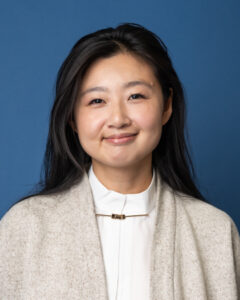This website uses cookies
We use cookies to ensure that we give you the best experience on our website. If you continue to use this site we will assume that you are happy with it.
Since March 2025, Julia Jiayang Yu, Cornell Tech LL.M. ’24, has been serving as counsel to the Gallant Commission in Canada, which is investigating the failed digital transformation of Québec’s automobile agency—a high-profile public project whose collapse has drawn national attention. The appointment reflects Yu’s commitment to public service and the specialized expertise she developed in Cornell Law School’s Law, Technology, and Entrepreneurship program at Cornell Tech.
The Gallant Commission was convened after Québec’s enterprise resource planning system for the automobile agency went live in February 2023 and failed, prompting a four-week suspension of public services. Auditor general warnings about implementation failures and rising costs led the government to form the inquiry to establish accountability and recommend reforms.

Julia Jiayang Yu
Yu’s role centers on reviewing technology and private contracts, advising on procurement law, and providing analysis for hearings and the final report. “What I’m doing is actively contributing to shaping public policy around tech government procurement,” Yu said. “I was a fully private lawyer who ended up working for the government during what’s considered to be the ‘biggest tech debacle in North America,’ entirely because I went through the master’s degree program at Cornell Tech.”
Yu discovered her passion for law early, shaped by Québec’s distinctive legal education system. Having gone to school in Montreal, she was first introduced to law around age nineteen. That experience, combined with volunteer work she had done since high school and her long-standing interest in public interest issues, set her on a clear legal career path.
After completing a combined LLB, JD, Yu became a licensed lawyer in 2017. She began practicing as technology increasingly shaped client work. Bitcoin also happened around this time, and she felt a shift in her professional life—away from the law she had been practicing and toward technology law.
A self-proclaimed “computer geek,” Yu could code and build websites. As clients embraced digital innovations, she pursued an LL.M. that combined law and technology and chose Cornell Tech for its integrated curriculum and New York City location.
“I wasn’t just going to law school, I was going to tech school to learn law,” she said. “The training there extended far beyond the classroom,” she added, “as I was regularly meeting people with skills that I would not have access to outside of that environment—for example, tech engineers.”
Yu says “I fully use what I learned at Cornell Tech every day . . .” adding that she regularly draws on Cornell’s network when recruiting experts and preparing testimony for the Commission. Yu said she relies heavily on connections formed through Cornell Tech, which have helped her reach senior international specialists and attract global attention to the inquiry. Among those experts is the lead researcher on the topic, who will testify on behalf of the Commission—a collaboration Yu credits to the strength of Cornell’s alumni community.
The Gallant Commission’s final report is due Feb 13, 2026; after it concludes, members will return to private practice.